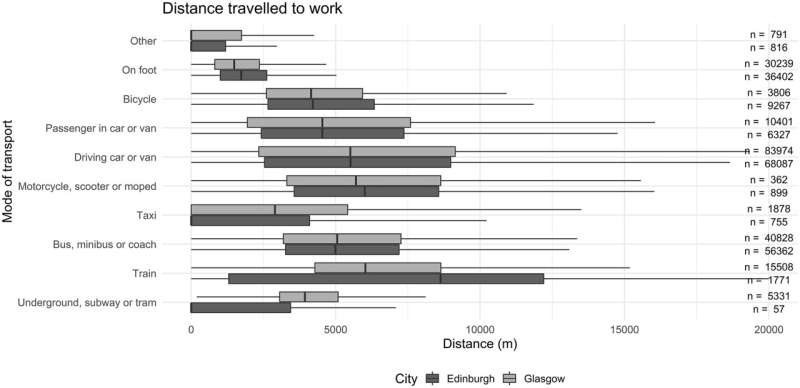This article has been reviewed according to Science X's editorial process and policies. Editors have highlighted the following attributes while ensuring the content's credibility:
fact-checked
peer-reviewed publication
trusted source
proofread
Cycling to work linked with better mental health

People who cycle to work are less likely to be prescribed drugs to treat anxiety or depression than those who commute using different modes of transport, new research shows.
The analysis of almost 380,000 people living in Scotland suggests that commuting by bike reduces the risk of mental ill-health.
While previous research suggests cycling to work benefits peoples' mental well-being, most studies have involved small numbers of participants and self-reported measures of mental health.
Cycling benefits
Edinburgh researchers combined data for 378,253 people aged 16-74 from the 2011 Scottish census with NHS prescription records for the following five years.
The people included in the study lived and worked in Edinburgh or Glasgow, stayed within around one mile of a cycle path and did not have any prescriptions for mental ill-health at the start of the study.
Researchers found a 15% reduction in prescriptions for depression or anxiety among cycle commuters in the five years after 2011 compared with non-cyclists. Commuting by bike led to greater reductions in mental health prescriptions in women than in men.
"Our study used the fact that otherwise similar people are more likely to cycle to work if they live close to a cycle path. Using this property, it was possible to mimic a randomized controlled trial and compare the mental health of those who cycled to work to those using other modes of transport but who were otherwise comparable," says Dr. Laurie Berrie.
Active travel
The team's analysis also reveals that only around 2% of commuters in Glasgow cycled to work, with just under 5% doing so in Edinburgh. Men were more likely than women to ride a bike to work.
The findings provide further evidence of the importance of promoting active travel and investing in infrastructure to encourage more people to commute by bike, the team says.
"Our finding that this economical and sustainable method of traveling to work also enhances mental health suggests that a policy of investing in cycle paths and encouraging active commuting is likely to have wide-ranging benefits. Not only could this improve people's mental health, but it could also help reduce carbon emissions, road congestion, and air pollution," says Professor Chris Dibben.
The findings are published in the International Journal of Epidemiology.
More information: Laurie Berrie et al, Does cycle commuting reduce the risk of mental ill-health? An instrumental variable analysis using distance to nearest cycle path, International Journal of Epidemiology (2024). DOI: 10.1093/ije/dyad153



















